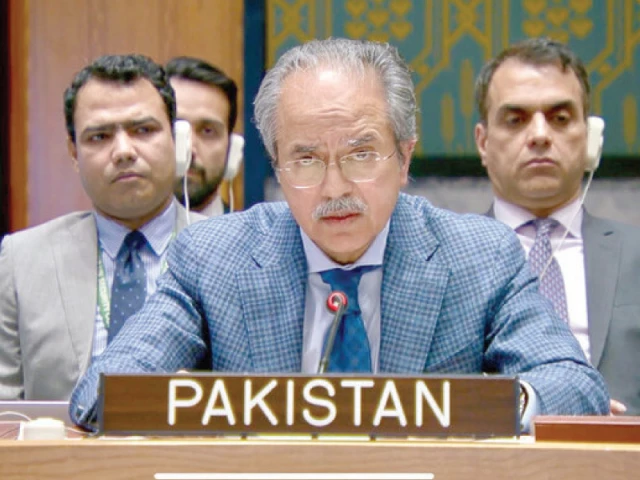UNITED NATIONS — Pakistan officially began its UNSC presidency on Tuesday, taking over leadership of the United Nations Security Council for the month of July. This marks Pakistan’s eighth term as a Council member and its first Council presidency since 2013.
Islamabad began its current non-permanent seat in January 2025. This two-year term will run until the end of 2026. While the Security Council leadership rotates each month and doesn’t carry executive authority, it does allow the presiding nation to steer the Council’s focus, set agendas, and guide discussions. This becomes especially important during global deadlocks over crises like Gaza and Ukraine.
Deputy Prime Minister and Foreign Minister Ishaq Dar shared a statement on social media to mark the occasion. He said Pakistan assumes this UNSC presidency “with humility and a firm commitment” to uphold the principles of the United Nations Charter. “Conflicts and humanitarian emergencies are rising across the world,” Dar said, emphasizing Pakistan’s serious approach to its presiding role.
As part of its leadership, Mr. Dar will chair two high-level sessions. One of these will be the Council’s quarterly open debate on the Palestine situation. This session is expected to gain widespread attention, particularly because of the deepening humanitarian crisis in Gaza.
Pakistan’s Permanent Representative to the United Nations, Ambassador Asim Iftikhar Ahmed, also released a statement. He noted that the world is going through a period of extreme uncertainty, growing geopolitical tensions, and dangerous threats to peace and stability. “This Council presidency gives us a chance to adopt a principled, fair approach in all deliberations,” he said.
Ambassador Ahmed promised that Pakistan will guide the Council with transparency, inclusiveness, and a focus on real-world impact. He reaffirmed the country’s long-standing support for dialogue, diplomacy, and peaceful conflict resolution.
“We are committed to strengthening the multilateral system,” he said, “and encouraging deeper cooperation between member states.” According to him, Pakistan’s goal is to lead the Council toward unified and timely actions that reflect both the UN Charter and global expectations.
As Pakistan holds the UNSC presidency this July, its leadership comes at a critical time. The world is watching how Islamabad balances principle, neutrality, and global responsibility in one of the most significant forums for international peace and security.


